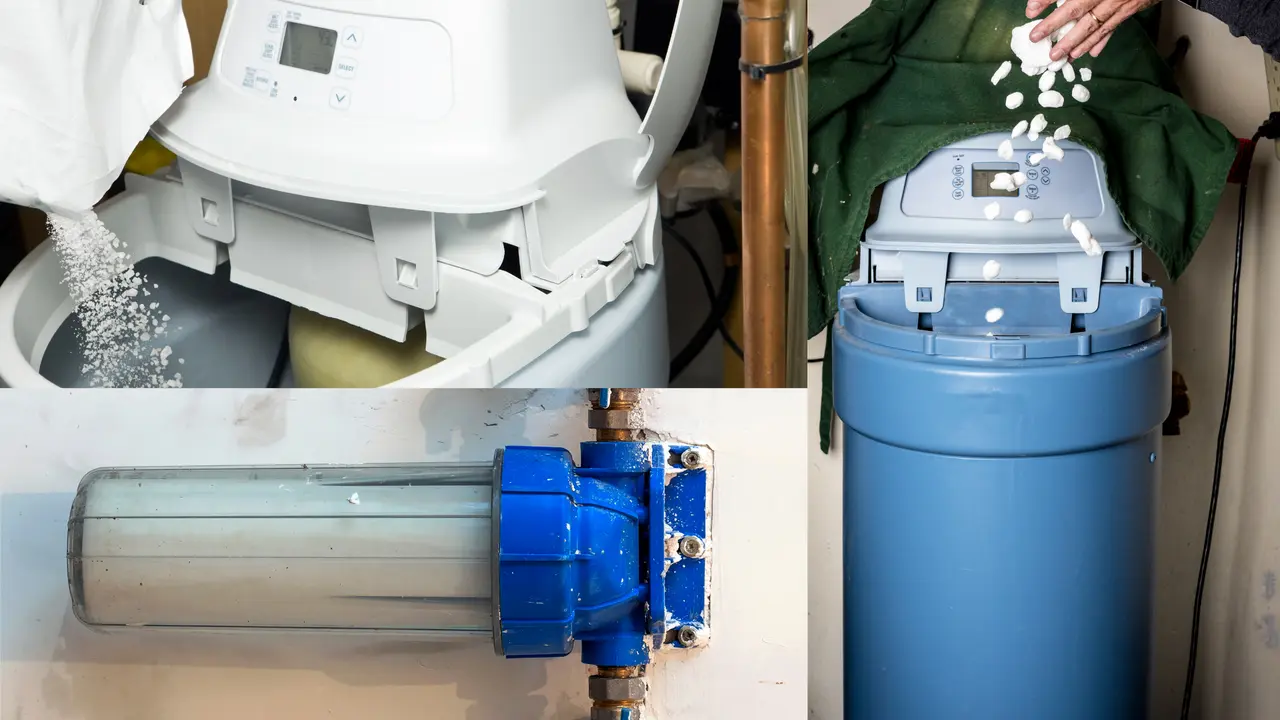Have you ever noticed a buildup of soap scum in your shower or stubborn water spots on your dishes? Hard water might be the culprit, but a water softener could be your solution! In this guide, we’ll explore what water softeners are, delve into how they work, and discuss their benefits. Let’s dive in!
What is Hard Water?
Hard water is water that has a high mineral content, primarily calcium and magnesium. These minerals can cause a range of issues in your home, from scaling on fixtures to reducing the effectiveness of soaps and detergents.
The presence of hard water is more common than you might think, affecting almost 85% of homes in the United States. This mineral-rich quality can lead to stubborn scale deposits on faucets and appliances, creating a persistent maintenance challenge.
What is a Water Softener?
A water softener is a system designed to remove minerals from water, specifically calcium and magnesium, which cause water hardness. The device generally works through a process known as ion exchange.
The ion exchange process is the cornerstone of how most water softeners operate, efficiently removing hard minerals by swapping them with softer ions like sodium. This exchange is pivotal to creating softer water that protects your home from the damaging effects of scale.
Water softeners can be integral to water management, particularly in areas with severe water hardness. Their installation can lead to significant long-term savings on plumbing repairs and energy costs, making them an invaluable investment for property owners.
How Does a Water Softener Work?
Water softeners use ion exchange to replace calcium and magnesium ions with sodium or potassium ions. This process softens the water, preventing common issues caused by hard water, such as limescale buildup and soap inefficiency.
During ion exchange, hard water passes through resin beads in the softener. These beads are charged with sodium ions, which kick-start the exchange process by attracting and binding with calcium and magnesium, leading to water softening that prevents buildup in pipes and appliances.
While efficient, traditional water softeners require regular maintenance, including salt refills, to ensure their optimal performance. This necessity makes them a little higher in care requirements than newer salt-free options.
Benefits of Using a Water Softener
Water softeners extend the lifespan of appliances, improve the effectiveness of soaps, reduce limescale, and prevent plumbing issues. These benefits make them a valuable addition for households dealing with hard water.
One of the most significant advantages is how softened water enhances the effectiveness of cleaning products, meaning you use less soap and detergent while achieving better results. Imagine brighter laundry and spotless dishes, all thanks to your water softener!
Do You Need a Water Softener?
Consider getting a water softener if you notice frequent limescale deposits, decreased soap efficiency, or residue on dishes and laundry. Testing your water’s hardness can also guide your decision.
For many, the choice to purchase a water softener can be influenced by the noticeable impact hard water has on household tasks. Before making a decision, we recommend checking your local water quality reports to gauge whether these issues align with hard water symptoms.
Looking into salt-free water conditioners can be beneficial, too. These alternatives offer gentler water treatment solutions without adding sodium to your water supply, keeping your plumbing and lifestyle heart-healthy.
Understanding the Importance of Water Softeners
In conclusion, water softeners play a crucial role in maintaining household appliances and ensuring your water is gentle on your skin and pipes. Understanding how they work and the benefits they bring can help you make informed decisions about water treatment in your home. If you’re dealing with hard water, a water softener might be just what you need. Explore our complete guide to how water softeners can enhance your quality of living on our Smart Living website.


